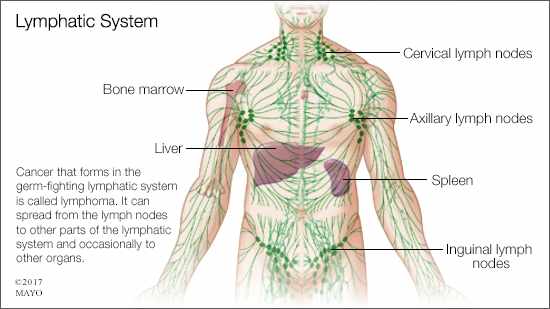-
Living With Cancer: Lymphoma treatment options
 Lymphoma: Diagnosis and treatment
Lymphoma: Diagnosis and treatment
Lymphoma is a cancer of the lymphatic system, which is part of the body's germ-fighting network. Treatment may involve chemotherapy, immunotherapy medications, radiation therapy or a bone marrow transplant, depending on the type and severity of your disease. Learn about treatment options, questions to ask your health care provider, strategies for coping and support, and more.
Managing your emotions after treatment for cancer
After treatment for cancer, it's common to experience emotions that may be overwhelming: fear of recurrence, depression, anxiety, anger, self-consciousness and more. Take time to acknowledge those feelings. Then take steps to understand why you feel the way you do and what you can do about it. Here are some ideas that may help.
Cancer pain: Relief is possible
Not everyone with cancer has cancer pain, and cancer pain takes many forms. It can be dull, achy, sharp or burning. It can be constant, intermittent, mild, moderate or severe. But most cancer pain is manageable, and controlling it is essential to effective treatment. Learn more from Dr. Timothy Moynihan, a Mayo Clinic oncologist.







